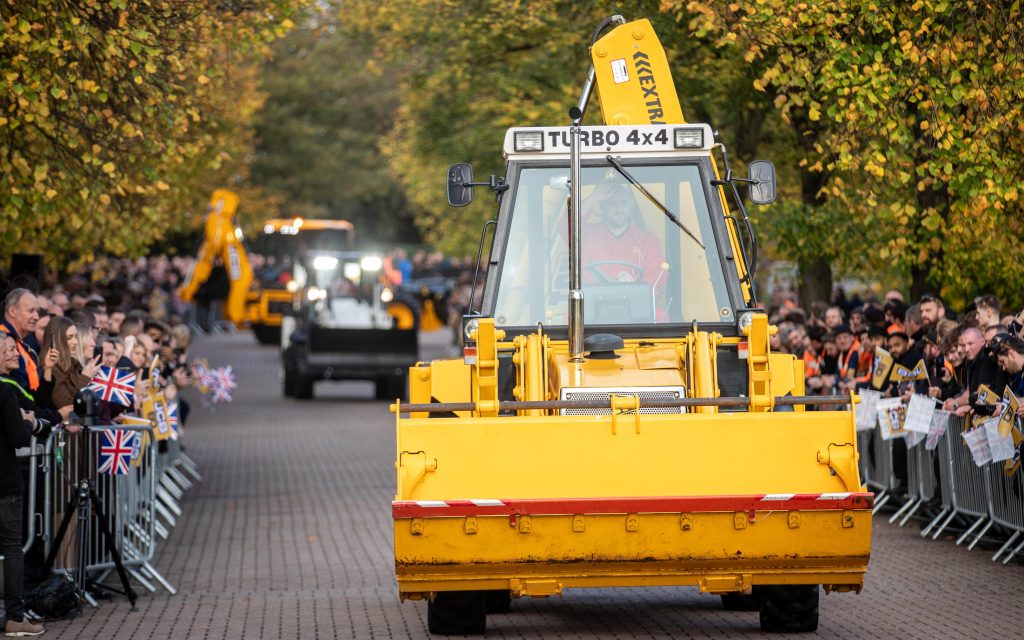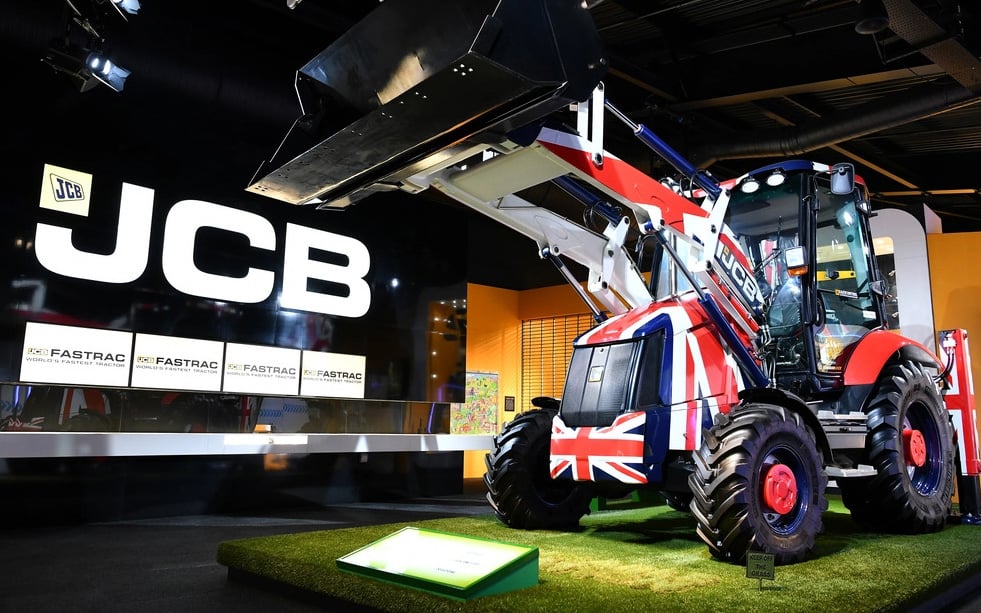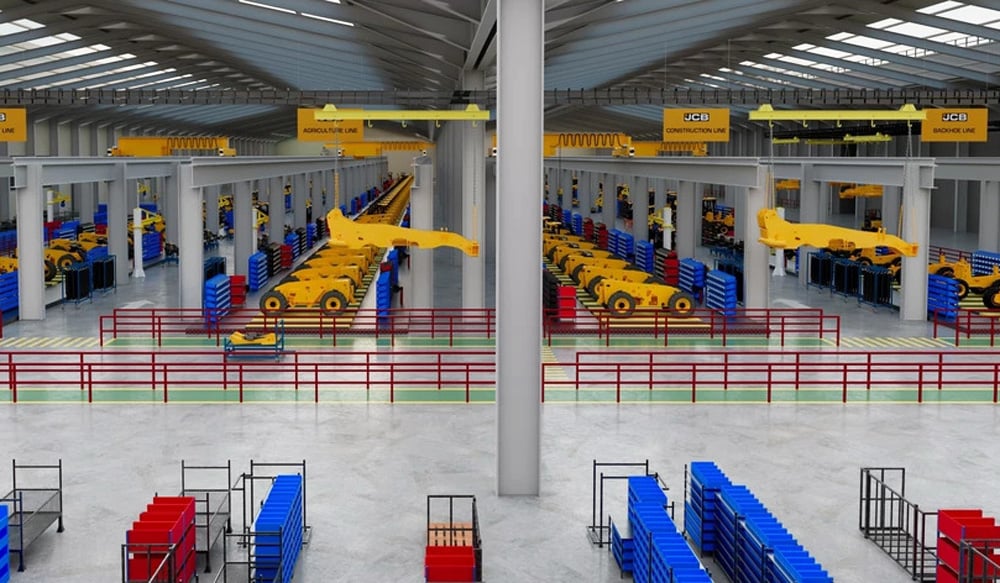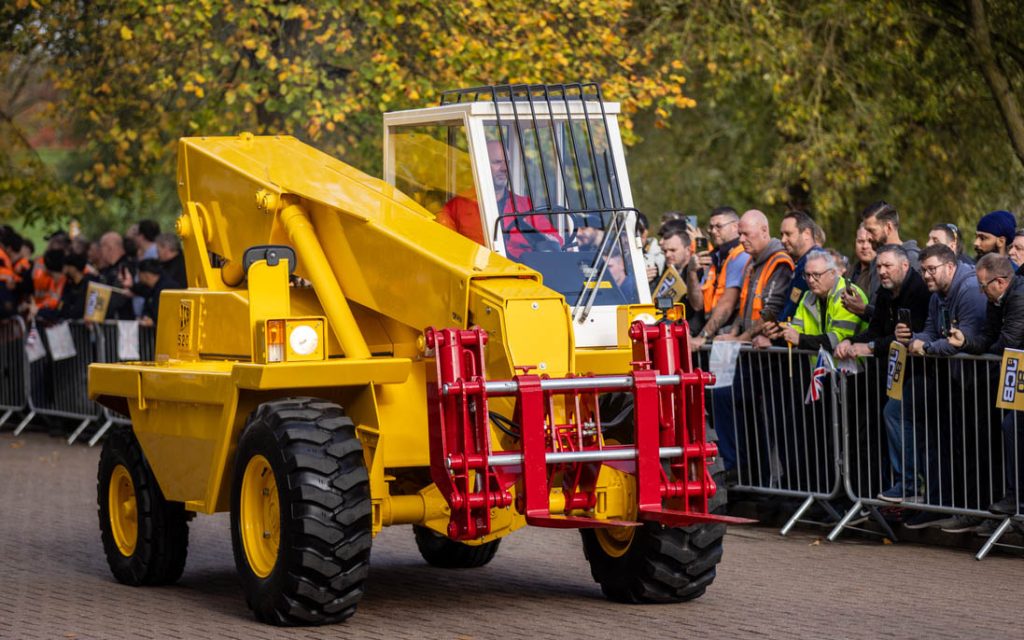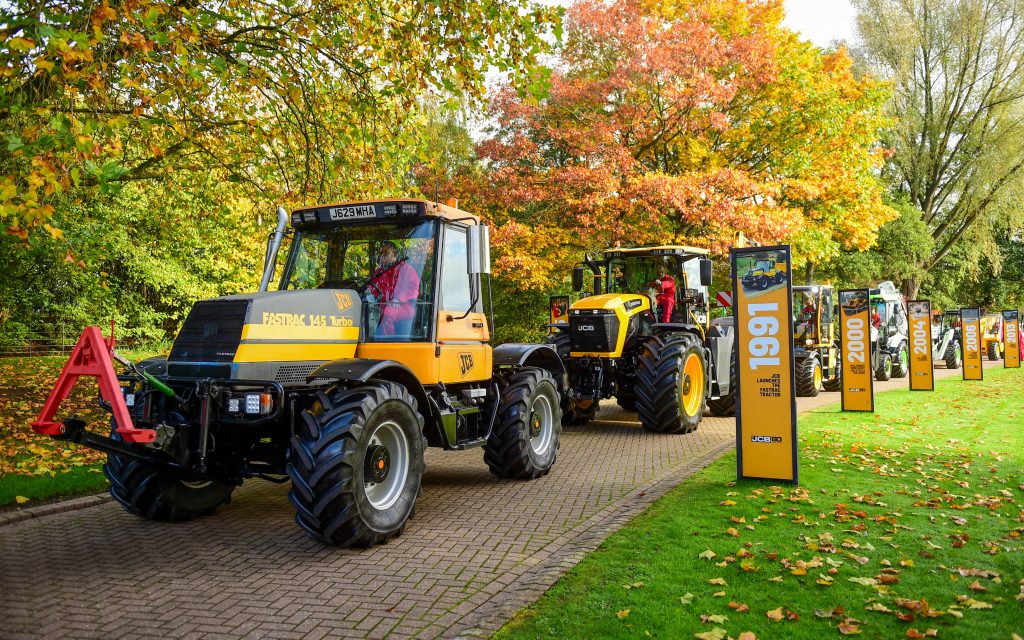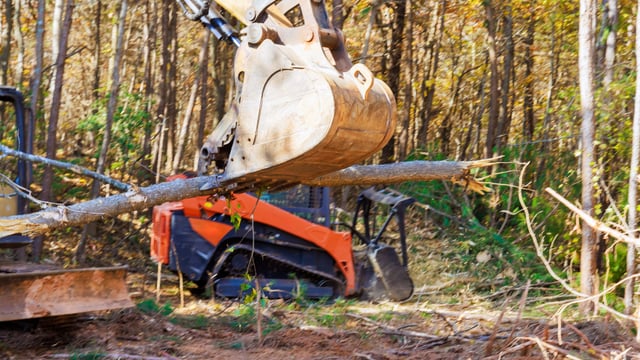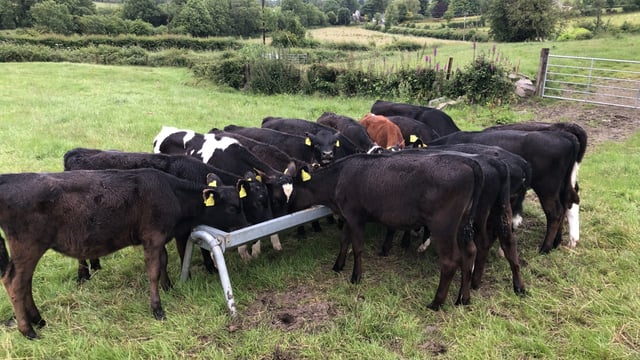JCB and Lord Bamford celebrate joint 80th birthday
The bright yellow machinery made by JC Bamord Excavators Ltd has become an icon that stretches far beyond construction and agriculture.
It has become a household word, a term often applied to diggers of any type, such is its association with making holes in the ground.
This year, the company celebrates its 80th birthday, and it has taken the occasion to note the achievements of its present chair, Lord Anthony Bamford, in expanding the company, both in size and reach.
As is well-documented, it was Lord Bamford's father, Joseph Cyril Bamford, who started the business in a lock-up garage at Uttoxeter, Staffordshire back in 1945.
Return from war
The birth of the company followed a pattern that was taken by many after the World War II, though Joseph Bamford does not immediately fit the stereotypical image of a penniless soldier made good.
He was born to the wealthy Bamford family of Staffordshire, who owned Bamfords International Farm Machinery, founded by Samuel Bamford in 1871.
Samuel himself was the son of Henry Bamford, a successful ironmonger in the area.
Bamfords, as it was generally known, had been building a range of farm machinery before the war, including stationary diesel engines at a time time when Joe Bamford was working with the family firm following a stint at Alfred Herbert Ltd of Coventry, the largest toolmaker in Britain at the time.
The firm had also developed a range of tractor-drawn mowers, and it is these it was allowed to produce throughout the war, alongside radar components and armoured scout vehicles, and continued to do so afterwards.
Coming home from service in the Royal Air Force in 1944, Joe Bamford sought like many others to settle into civilian life, working for English Electric developing welding equipment prior to a second stint with the family firm.
Joe Bamford's itchy feet
Joe's return to the family firm did not go well and it was a matter of months before he left, eventually leading him to rent a lock-up garage in Uttoxeter where he assembled his first product, a farm trailer from surplus wartime equipment.
He opened his business on the day that his son, Anthony Paul, was born; hence both celebrated their 80th birthday on October 23.
The success that followed was not just due to the quality of engineering but also to his attention to customer service and an activity somewhat unusual amongst his peers of the time - marketing.
Indeed, so attentive to this dark art is JCB still that what appears to be the only book written about the company is produced by its marketing department, and even that tells the story through its advertising over the years.
Anthony Bamford's early years
Like his father had at Alfred Herbert Ltd, Lord Anthony Bamford himself gained hands-on experience in engineering through a three-year apprenticeship with Massey Ferguson in France before returning home to take on management roles within the company.
The reason he went to Massey Ferguson may be related to the fact that JCB were using Perkins diesel engines, which was owned by Massey Ferguson at the time.
Having returned to his father's business, he undertook various managerial roles, including the expansion of the company into the European market, before being appointed as chair of JCB in 1975.
Having taken up the reins of the company, Anthony Bamford started to expand both its model range and its market reach, alongside the vertical integration of its production.
Full control of manufacture
The company now produces its own axles, transmissions, and engines and many other components aside, which is a theme common to construction equipment manufacturers - Caterpillar, Komatsu, and Volvo being further examples.
Two new products that are of immediate interest to farmers and marked the return of the JCB family to its agricultural roots were the Loadall, introduced in 1977, and the Fastrac which appeared in 1991.
Both have also been adopted as generic names for the type of machinery they represent; farm materials handlers and high-speed tractors.
Manufacturing products is one thing, but they also need to find a market and this is where Lord Bamford and his sales people have performed particularly well.
Turnover in billions
Since becoming chair, Lord Bamford has taken the company global with its latest factory being built at St. Antonio, Texas in 2023, a year that saw the company achieve £6.5bn in turnover and the sale of 123,228 machines.
Today, JCB has 22 plants around the world and more than 19,000 employees, all of whom have been given an extra day off to celebrate the anniversary.
The major event of the day, however, was the unveiling of a blue plaque by Lord Bamford at the site of his father's original workshop, although this has long since gone.
Following this ceremony, Lord Bamford returned to JCB's base in Rocester, where more than 3,500 employees lined the Lakeside Works pathways to pay tribute as he and a cavalcade of the machines that have been introduced under his stewardship passed by.



